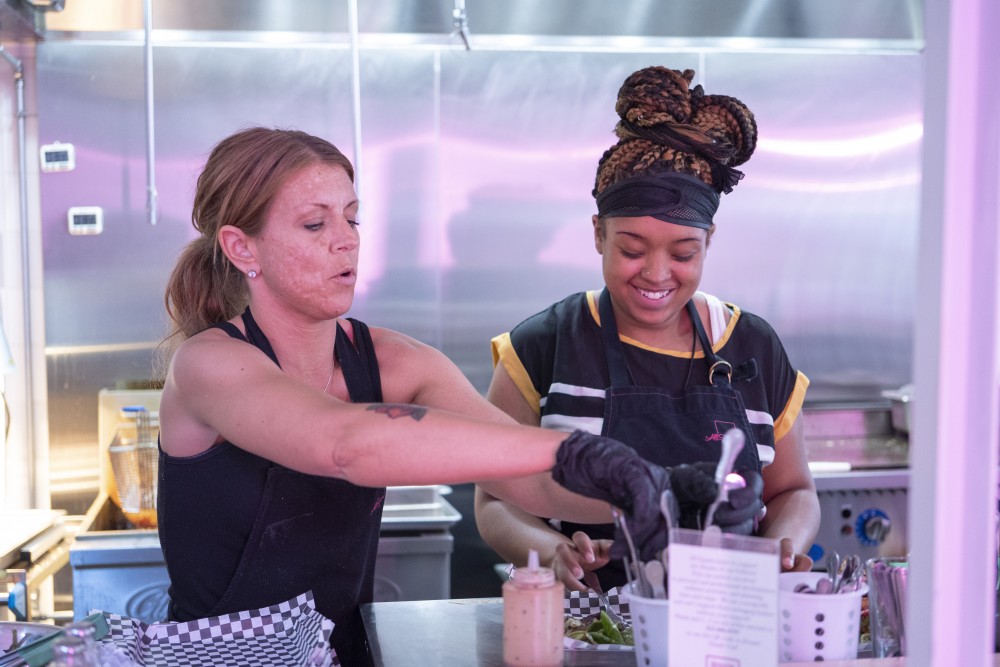All Square serves up delicious grilled cheeses, but its name stands for much more than the classic square sandwich. The restaurant employs those with criminal records, who may otherwise encounter barriers when searching for work.
From the kitchen, it is easy to see a large mirror with the phrase, “Those who have paid their debts to society are all square” — a reminder that everyone deserves to be judged on their merits and not their mistakes.

But the restaurant is just half of the equation. All Square is also an institute with a one-year fellowship program which focuses on mental health and professional development in tandem with employment at the restaurant.
At the end of the summer, All Square’s first-ever cohort of fellows will graduate. Nei’Yana Roby said she prayed for two years for something like All Square to come around. As a fellow in the program, she was able to kick off her own online business selling synthetic eyelashes and phone cases.
“People have assumptions about us until they come here and experience that we are regular people just trying to get our lives together like anyone else,” Roby said.
Emily Hunt Turner, founder and CEO, is a civil rights attorney and former attorney with the U.S. Department of Housing and Urban Development. She became increasingly tired of seeing first-hand how having a criminal record disallowed people from finding public housing.
“On top of that, knowing that the criminal justice system doesn’t always get it right and it’s disproportionately affecting people of color … that is what fueled All Square,” she said.
A 2016 Kickstarter campaign, a whole lot of community support and finding the perfect location on Minnehaha Avenue led to the restaurant’s opening in September 2018. Now, All Square has eleven creative grilled cheeses, along with a kid-friendly option – some of which are fellows’ own creations, like “Did My Thyme,” a sandwich with five cheeses, cucumber, hummus and Greek sauce, or the “Hot Wing” grilled cheese, with tender pulled chicken, bleu and Swiss cheese and hot sauce. The restaurant also offers vegan and gluten-free renditions.

Nate Howard, a fellow since the beginning, will soon serve as general manager of the restaurant and is on a path to law school following classes he took at the Institute.
“Going to jail and going through that process exposed me to [the system] because my public defender was horrible. I feel like I could do better than him, so I want to challenge myself,” he said.
Chris Dolan, another fellow, says he has taken full advantage of the program.
“I had a lot of years of just spinning my wheels and not really accomplishing things. And then there were some addiction issues and I got into a little trouble with the law,” he said. “Years kept passing by. But, I have a lot of potential, I believe. I did well in college. Then the felony came, and I couldn’t find work.”

Through classes at the Institute, Dolan started his own wedding equipment rental business. He also took the LSAT exam and is applying to law schools for this fall.
Though he is busier than ever, he is passionate about his work. “I don’t want people to go to jail for years because they’re an addict,” he said.
Giving formerly incarcerated people opportunities to learn about law and entrepreneurship is a key part of the program. But, so is establishing a community — something Turner believes is “the most important piece” of the puzzle.
This is the fourth article in “Digging In,” a series about the stories behind beloved Twin Cities restaurants.









